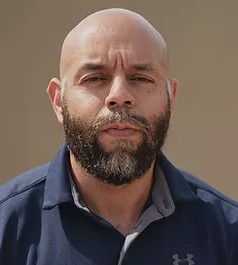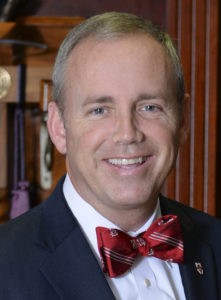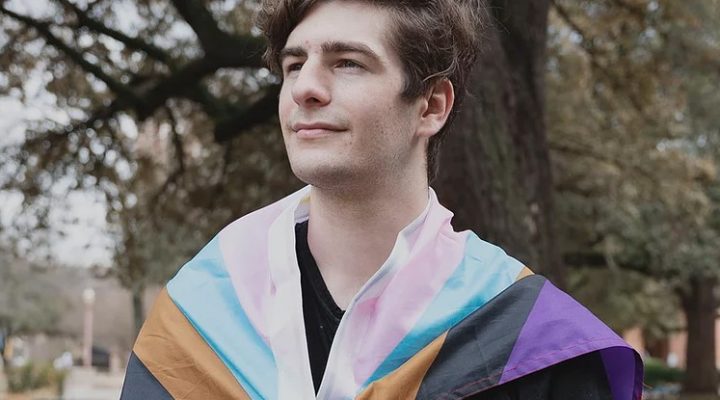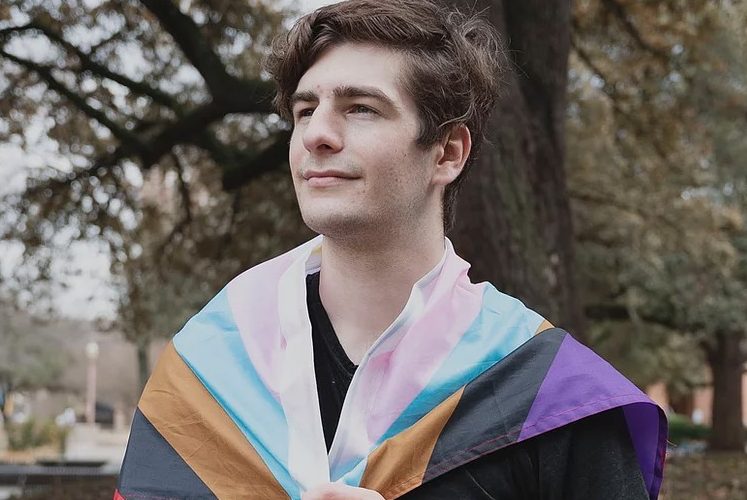Three Baptist universities are among 25 faith-based schools named in a class-action lawsuit filed March 29 against the U.S. Department of Education, with claims of unlawful discrimination against LGBTQ students.
The suit, filed in U.S District Court in Eugene, Ore., by the nonprofit Religious Exemption Accountability Project, says the religious exemption these schools are given that allows them to maintain discriminatory policies while receiving federal funding is unconstitutional.
Baylor University in Waco, Texas; Union University in Jackson, Tenn.; and Oklahoma Baptist University in Shawnee, Okla., are among the schools named in examples of discrimination against LGBTQ students by the nonprofit Religious Exemption Accountability Project.
Other schools named include high-profile institutions such as Fuller Theological Seminary, Brigham Young University, Liberty University, Moody Bible Institute and Seattle Pacific University.
None of these schools is the direct object of the litigation; they are used as illustrations of the complaint against the Department of Education. However, successful litigation of the case would have direct financial effect on these and many other faith-based schools.
What is the ‘religious exemption’?
Title IX of the U.S. Department of Education code states: “No person in the United States shall, on the basis of sex, be excluded from participation in, be denied the benefits of, or be subjected to discrimination under any education program or activity receiving federal financial assistance.”
Title IX applies to a wide array of campus programs and services, including athletics, recruitment, enrollment, financial aid, housing and more.
Faith-based schools are allowed to request a religious exemption from parts of the law.
The law is perhaps best known for its application to college athletics, where it requires that women and men be provided equitable opportunities to participate in sports and that female and male student-athletes receive athletics scholarship dollars proportional to their participation.
However, faith-based schools are allowed to request a religious exemption from parts of the law “to the extent that application of Title IX would be inconsistent with the religious tenets of the organization.” Requests for exemption must be submitted in writing to the Department of Education’s assistant secretary for civil rights.
For example, in 2014, Oklahoma Baptist University applied for and was granted a religious exemption in admissions, recruitment, student conduct, housing, restrooms and locker rooms and other areas. Its letter stated: “This request for exemption is from provisions of Title IX to the extent application of those provisions would not be consistent with the (Baptist General Convention of Oklahoma’s) religious tenets regarding marriage, sex outside of marriage, sexual orientation, gender identity, pregnancy, and abortion.”
Similar requests are on public file from Baptist-affiliated schools Carson-Newman University, Criswell College, East Texas Baptist University, Hardin-Simmons University, Howard Payne University, Judson College, Midwestern Baptist Theological Seminary, Missouri Baptist University, Shorter College, Southeastern Baptist Theological Seminary, Southwest Baptist University, Truett-McConnell University, University of Mary Hardin-Baylor, Wayland Baptist University, William Carey University and Williams College.
Other Baptist-affiliated schools may have received similar exemptions from Title IX, but the full list is not published. Schools on the list above were identified in 2016 after a complaint from the Human Rights Campaign forced the Department of Education to identify schools with approved exemptions at that point.
In 2015, the Baptist General Convention of Texas adopted a resolution “on transgender issues” that was specifically designed to provide protection for Texas Baptist universities that discriminate against transgender persons in accommodations.
With such a resolution in place, universities affiliated with Texas Baptists could claim a religious exemption from the non-discrimination requirements.
That resolution stated that “God created humanity as two genders, male and female,” and that “gender is based on biological attributes and is seen as a gift from God and immutable.” It declared “great concern with the emergence of the transgender agenda and the notion that one’s gender is determined psychologically, not biologically.”
With such a resolution in place, universities affiliated with Texas Baptists could claim a religious exemption from the non-discrimination requirements of Title IX that require accommodations in housing and other aspects of campus life.
What’s this class-action suit about?
The class-action suit filed March 29 claims these religious exemptions are unconstitutional for schools that receive federal funding. Such federal funding could include student loans and grants or funding for specific educational or research objectives through various federal agencies.
The suit makes several general claims. Among them:
- “The plaintiffs seek safety and justice for themselves and for the countless sexual and gender minority students whose oppression, fueled by government funding, and unrestrained by government intervention, persists with injurious consequences to mind, body and soul.”
- “The Department’s inaction leaves students unprotected from the harms of conversion therapy, expulsion, denial of housing and health care, sexual and physical abuse and harassment, as well as the less visible, but no less damaging, consequences of institutionalized shame, fear, anxiety and loneliness.”
- “When taxpayer-funded religious institutions require sexual and gender minority students to hide their identity out of fear, or to behave contrary to their fundamental sexual or gender identity, the unsurprising consequences are intense pain, loneliness and self-harm.”
- “When the government provides public funds to private actors, like the colleges and universities represented by plaintiffs, the Constitution restrains the government from allowing such private actors to use those funds to harm disadvantaged people.”
The lawsuit seeks a jury trial and court declaration that the religious exemption to Title IX, “as applied to sexual and gender minority students,” is unconstitutional and that the Department of Education “must enforce the protections of Title IX at all taxpayer-funded educational institutions.”
Further, the suits claims the Department of Education “has never denied a religious exemption when a religious educational institution asserts a religious objection, no matter how vague or broad that objection might be, and regardless of the severity of harm inflicted on the student whose complaint, or mere existence, gave rise to the exemption request.”
Most faith-based colleges and universities maintain student codes of conduct that are structured around the school’s religious belief systems.
And it alleges that the Department of Education “has relied on religious exemptions to close Title IX complaints filed by sexual and gender minority students against their colleges or universities.”
Most faith-based colleges and universities maintain student codes of conduct that are structured around the school’s religious belief systems. Those typically include prohibitions on sexual activity outside of marriage and sometimes venture into more specific policies related to pregnancy, same-sex relationships, alcohol and tobacco use and other issues deemed moral in nature.
Examples given from Baylor
The 67-page court filing includes examples given by the 33 plaintiffs about each of the 25 named schools.

Veronica Bonifacio Penales
Veronica Bonifacio Penales is a queer 19-year-old student at Baylor University. She says in the suit: “The school’s common response to my reporting hate on campus is that I should go to counseling. As a result, I stopped reporting incidents.”
Penales claims she has been harassed online and on campus by other Baylor students because of her sexuality. She said she has reported these incidents to Baylor but university officials did not respond to her complaints, and she continued to be harassed by other students.
LGBTQ students, alumni and allies have petitioned Baylor for several years to recognize a gay-straight student alliance known as Gamma Alpha Upsilon. Last year, the university’s board of regents declined to change Baylor policy banning “advocacy groups which promote understandings of sexuality that are contrary to biblical teaching.”
LGBTQ students and allies have claimed the university has a double standard because it has allowed anti-gay hate speech on campus while denying recognition to pro-LGBTQ student groups.
Penales charges in the lawsuit that “Baylor cares more about its right to discriminate against its queer and other students than it does about the health and safety of its queer and other students.”

Jake Picker
Her comments are echoed in the suit by Jake Picker, a pre-med student at Baylor who is a bisexual man and a leader in Gamma Alpha Upsilon.
“Baylor claims to love its LGBTQ+ students, yet they refuse to grant us access to any form of student support system,” he says in the suit. “They treat our existence like there is something inherently wrong with us.”
The lawsuit says that “while Baylor is unlikely to discipline its queer students for being queer, it creates a hostile environment for its LGBTQ+ students. For example, an LGBTQ+ student is likely to face discipline if they openly show affection for a same-sex partner on campus.”
Examples given from Union
Alex Duron lives in Fresno, Calif., and gained national media attention when in August 2020 his admission to a graduate nursing program was rescinded by Union University in Jackson, Tenn. The stated reason for the denial is that Duron is gay and was engaged to a man.

Alex Duron
The lawsuit recounts how Duron earned an associate degree from San Antonio College and a bachelor’s degree from the University of Texas at Arlington, then worked as an ICU nurse for six and a half years before his admission to Union’s doctor of nurse practice program.
He moved from San Antonio, Texas, to Jackson, Tenn., sold his car, quit his nursing job, paid his deposits to Union and secured graduate student housing. Then days before he was to begin graduate studies, he received an email from Union saying his admission was being rescinded.
“I remember the moment I received that email vividly,” Duron says in the lawsuit. “My future was ripped away from me. It felt like all my work as an ICU nurse and all my prior degrees meant nothing.”
Scott McSwain is a gay man who acknowledged his sexual orientation while a student at Union University.

Scott McSwain
According to the lawsuit, university officials “took Scott into a dimly lit room where they told him that he was going to hell and that the school was worried for his soul. Union officials told Scott that he would be thrown out and all of his credits taken away if he did not attend sexual conversion therapy.”
McSwain was given vouchers to a therapist approved by Exodus International, a now-discredited group that claimed it could help men and women reverse same-sex attraction.
The lawsuit claims that during his time in conversion therapy, McSwain was sexually assaulted by his therapist and was subjected to “severe psychological torture” through the university’s discipline.
The local Jackson, Tenn., newspaper published a lengthy article about Union and its anti-gay policies in August 2020.
Example given from OBU
Tristan Campbell lives in Belmont, Mass., and previously attended Oklahoma Baptist University. He came out as bisexual on Coming Out Day 2015.

Tristan Campbell
“OBU’s response was to dismiss Tristan from the school without notice,” the lawsuit claims. “He found out when the registrar informed him he’d been administratively withdrawn and asked Tristan where he would like his transcripts sent.”
Campbell claims the dean of students “told me that what he was trying to say is that if I came out publicly and remained a student at OBU, he couldn’t guarantee my safety.”
Campbell says in the suit that he spent years trying to “overcome same-sex attraction” through “prayer, reading books and self-discipline” but this did not work. As a result, “my mental health started deteriorating, and I made no progress toward overcoming my attractions despite my several years of intense efforts.”
The suit adds: “While faculty and students that Tristan came out to were generally supportive, OBU reacted with condemnation and discipline. Tristan was fired as a resident assistant. The school told him that, as a bisexual, he was not allowed to serve in this role. The school also said that other students who came out were harassed, and the school couldn’t guarantee Tristan’s safety. OBU eventually dismissed Tristan from OBU without notice.”
Further complicating matters, Campbell reported that he was assaulted by a romantic partner while a student at OBU but felt unsafe filing a Title IX complaint for fear of facing repercussions from the university.
Response from schools named
In response to being named as an example in the lawsuit, Baylor released a brief statement.
“Baylor University maintains certain rights to exercise its freedom of religion under the U.S. Constitution and other federal laws without interference by the government,” spokesperson Lori Fogleman said. “This includes exemptions for religiously affiliated institutions that uphold traditional religious beliefs about marriage and sexuality. As part of our Christian mission, Baylor continues to strive to provide a loving and caring community for all students, including our LGBTQ students.”
“As part of our Christian mission, Baylor continues to strive to provide a loving and caring community for all students, including our LGBTQ students.”
At OBU, university spokesperson Kenny Day said: “We can confirm that OBU has been named, along with 25 other Christian colleges and universities, in a lawsuit filed against the U.S. Department of Education. OBU is not being sued at this time. We are unable to comment further regarding ongoing litigation.”

Samuel W. “Dub” Oliver
Union University President Samuel W. “Dub” Oliver told BNG: “At Union University, we believe that all persons have inherent dignity and thus should be treated with kindness and respect. We exercise our legally guaranteed religious freedom in a manner that upholds and reflects this bedrock principle. Faith-based colleges and universities are an indispensable part of America’s diverse higher education landscape.”
He added: “This dubious lawsuit is an ill-considered effort to erase religious schools by denying financially disadvantaged students the ability to attend the college of their choice. It’s a misguided attempt to discard a congressional enactment consistently respected and enforced by every presidential administration — both Democrat and Republican — for over four decades. We intend to vigorously protect our interests and encourage the Biden administration to fulfill its duty to defend a law that reflects the best traditions of American liberty.”
Religious liberty implications
Although not solely presented as a religious liberty case, the lawsuit does in part rely on a First Amendment claim.
The Religious Freedom Restoration Act of 1992 and other court rulings evaluate free exercise of religion claims by whether they employ the “least restrictive means” possible and whether laws serve secular purposes that do not favor one religion over another.
The lawsuit claims these exemptions to Title IX do not serve a secular legislative purpose and “benefit some religious educational institutions over other religious educational institutions.”
“The religious exemption to Title IX benefits religious educational institutions over non-religious educational institutions.”
It explains: “To qualify for the exemption, religious educational institutions must operate according to certain governance structures and maintain certain beliefs. Religious educational institutions without such structures or beliefs cannot benefit from the religious exemption. The religious exemption to Title IX benefits religious educational institutions over non-religious educational institutions.”
Relation to the Equality Act
The new lawsuit comes as Congress debates how much religious institutions should be held accountable for discrimination against LGBTQ persons. The U.S. House of Representatives recently passed legislation called the Equality Act that would add gender identity and sexual orientation to groups protected under the Civil Rights Act, while weakening exemptions for religious groups.
This bill faces a challenge in the U.S. Senate, however, where it needs 60 votes to pass and appears to be opposed by all 50 Republican senators. An alternative bill, called the Fairness for All Act, has been proposed but faces opposition from both the right and the left.
The Fairness for All Act would make it illegal for an employer to fire someone based on sexual orientation or gender identity, and it would provide similar protections against housing discrimination. But it would create specific carve-outs for churches and faith-based organizations that believe discrimination is required by their beliefs.
For example, the bill would prohibit government from disallowing faith-based organizations from receiving federal funds for adoption placement services and educational opportunities — even though those religious institutions might decline to serve gay people, same-sex couples or transgender persons.
The Washington Post reported that concerns over possible alternatives or amendments to the Equality Act are driving the timing of the class-action lawsuit.
“The prospect of carve-outs for the hundreds of schools with policies barring LGBTQ behavior or advocacy led to the suit.”
“Religious organizations seeking a compromise measure that would include religious exemptions have been meeting for weeks with gay rights and civil rights groups,” the Post reported. “The prospect of carve-outs for the hundreds of schools with policies barring LGBTQ behavior or advocacy led to the suit, said Paul Carlos Southwick, director of the Religious Exemption Accountability Project.”
Relation to ‘ministerial exception’ in hiring
The class-action lawsuit also comes just three weeks after a ruling by the highest court in Massachusetts that a social work professor at a nondenominational Christian college is not a “minister,” meaning she may proceed with a discrimination suit against the college.
The Massachusetts Supreme Judicial Court ruled that the “ministerial exception” — which shields religious institutions from employment-related lawsuits brought by employees with ministerial roles — does not extend to a social work professor who claims she was denied tenure by unlawful discrimination. The college had claimed this exemption as a reason for the case to be dismissed outright.
The “ministerial exception” in hiring and personnel management is separate from yet related in concept to the “religious exemption” faith-based schools get on federal funding.
Related articles:
Baptist schools seek waiver from LBGT discrimination ban
LGBTQ-friendly student group, alumni vow to fight for inclusion at Baylor
Equality Act stirs passions about the definition of religious liberty and RFRA’s role
Anti-transgender bills introduced in more than a dozen state legislatures
Does landmark religious freedom legislation need a fix or is it fine as is?


